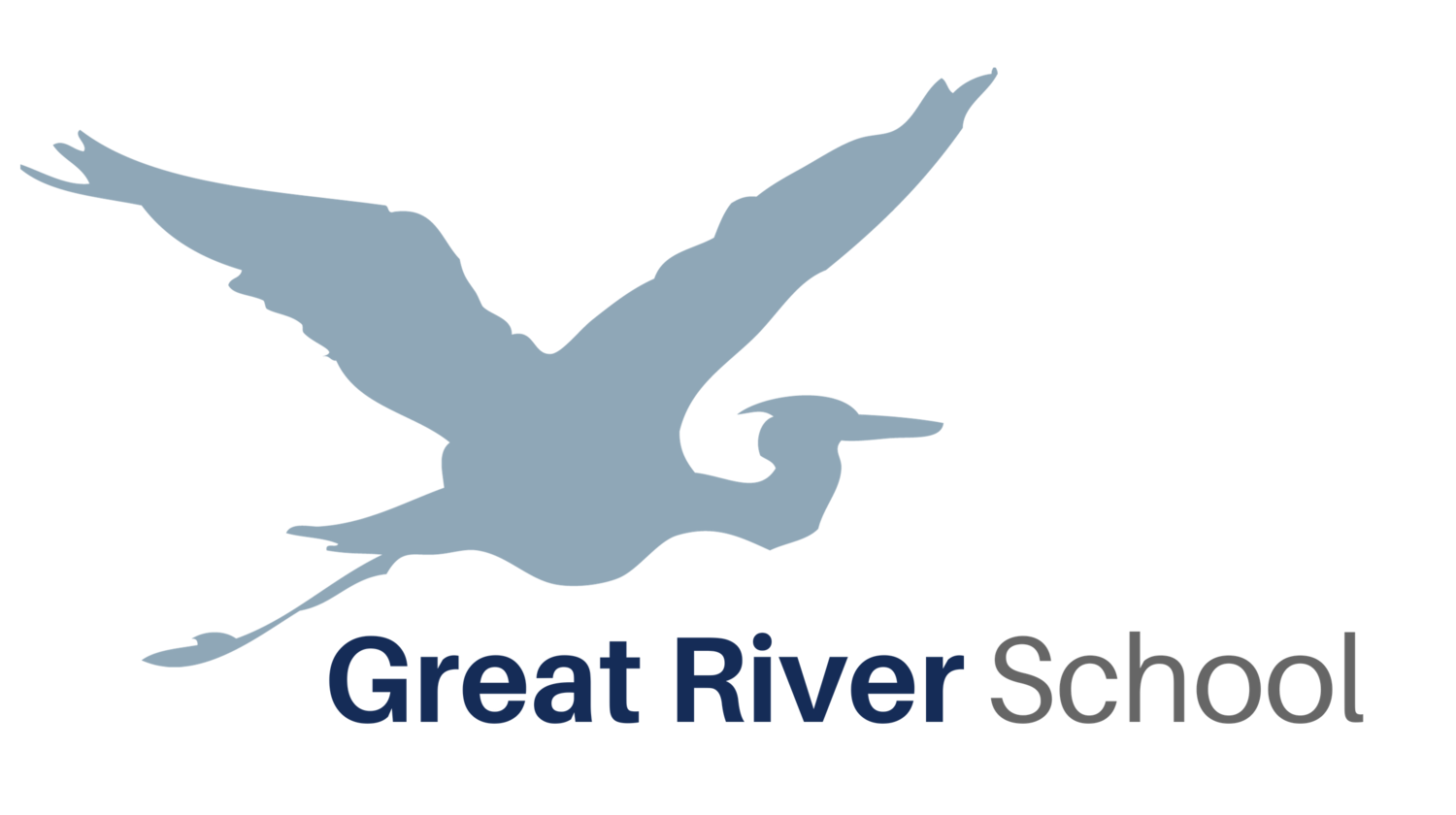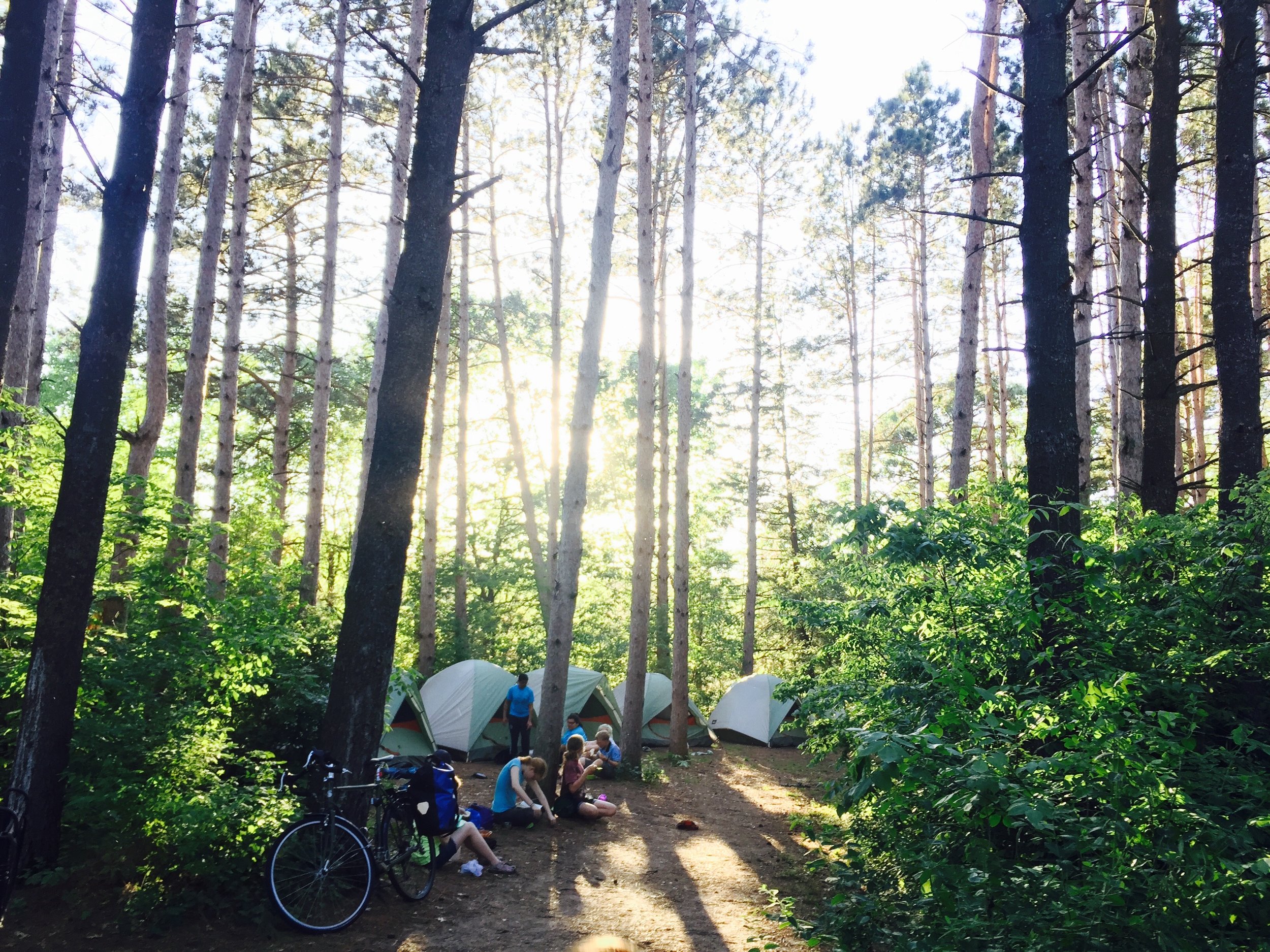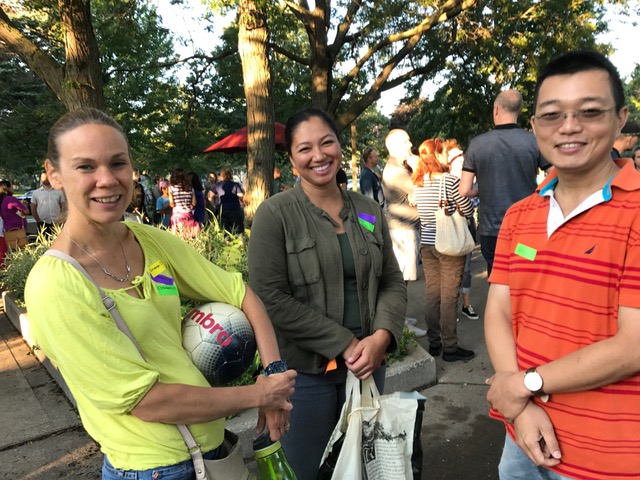There’s nothing 21st century about the YMCA’s Camp Widjiwagan. You can’t even rely on getting a simple snapchat. You eat in a dining hall without a single screen hanging from a wall. You hardly ever hear a beep. To experience Widji, as it is commonly known, is to step foot in the 1970s, when Montessori schools in Minnesota first started heading to Ely for a week of outdoor education (Okay true, we didn’t have Gore-tex back then. You get the point).
This was Great River’s fourth year at Camp Widji, the fourth year eating healthy, home-cooked meals in Kirby Hall and starting a fire in the woods and roasting marshmallows during Wilderness Survival class. A fourth year where getting wet is somehow something to be prized instead of avoided.
Widji’s academic-year program, started in 1973, allows schools to send students to the camp for a week of environmental education, including studying wilderness survival, plant and tree identification, basic hiking and canoeing skills, and opportunities to read the night sky. More than anything, it allows urban/suburban children who are increasingly detached from the natural world a chance to play in it. At Widji you study nature, as in, you walk outside and there it is. And then you stay there for awhile.
The Widji excursion is what Great River calls a “key experience” for elementary children. “It’s definitely a learning experience,” said Greta McCann (Grade 4). “We learn how not to disrespect nature.” Vivian Turbak (5) calls it “a camp where you do a lot of hiking… I’ve gone two years. Last year we didn’t jump in the lake with all your clothes on, but we did this year. My boots. My socks. My clothes.” Her trailing voice transmits some discomfort.
I asked several students what stood out from their four days at Widji. For Greta, it was the Eco-Hike, an all-day jaunt through the Burntside State Forest routinely taken on the last full day of camp. Widji’s 400 acres contains almost 50 miles of trails, which enables each of the study group (comprising 8 students and 1 counselor) plenty of room to wander without bumping into another group. “We hiked through a bog and we picked cranberries,” said Greta. “We made a cranberry and blueberry sauce. We also started a fire and roasted marshmallows.”
Scarlett Goetzman (4) recounts a moment from her group’s Eco-Hike. “There was a huge rocky outcropping and we climbed down the cliff. At the bottom there was a clear pool of water. And a waterfall going [makes swooshing sound]. On the ground there was fuzzy moss and it was surrounded by Jack Pines. It was the most beautiful thing I’ve ever seen.”
Another perennial highlight is the mass role-playing game called Predator and Prey. Vivian describes it as “a game where voles try to hide from their predators. Weasels have to hide from their predators and catch their prey at the same time. Owls have to catch their prey and stay away from diseases. It’s fun,” she continued, “because I started a vole but I turned into a weasel. A weasel caught me, so technically I’d be dead. But in the game I turned into a weasel. I had to hide and chase.” In other words, if you are on one end of the food chain you only hunt. If you are on the other, you only escape. If you are in the middle, all bets are off. Vivian prefers being in the middle of the food chain.
For Harper O’Dowd (5), the high-octane strategy game was also a highlight. As a vole this year, Harper enjoyed “amassing vole power.” He and his cadre of four-foot rodents could be heard chanting, “We will stand our ground” or “Chapel Point is our land.” We found that “if we all met at Chapel Point,” he said, we could “leverage” our strength “by spreading out in all directions and confuse the weasels and the owls. They only have 10 seconds to chase us, so we could separate them from their brains [the adult in their group].” This is what Great River rodentia refer to as “The Battle at Chapel Point.” I’m not simply reporting this.
I know. I was there.
Harper learned that games can ben re-invented. Vivian learned how to identify different kinds of trees. Mino Whitley-Mott (6) learned “how to make tea from different kinds of leaves: wintergreen, white pine and sweet fern.” Greta learned “that you should always wear rain boots when going into a bog.” Vivian also learned that she could take a 6-hour hike and enjoy it. “If you think about how hungry you are and how tired you are, then you start complaining about your sore legs and being hungry.”
Getting to learn from seasoned Widji staff is also a big take-away for most students. Scarlett thought that her Group Leader, Leah, was inspiring.“She was pretty awesome,” she said. “She let us climb cliffs. We climbed Sky Trail at night so we couldn’t see the rocks and we kept slipping. People were asking if we could turn on our flashlights, but she kept us going and confident. She said, ‘You can do it! You’ve got it!’”
-John Albright, Little Elk Classroom Guide
See the full Widji trip photo album here!












